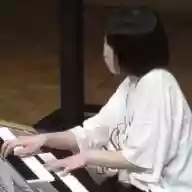Let's sing together! A collection of nursery rhymes everyone knows
Nursery songs that many people have sung in day-care centers, kindergartens, and schools.
These children’s songs, passed down through generations, are still sung today in childcare settings, schools, and even senior facilities.
That said, fewer people are singing them nowadays, and some children can be found who don’t know nursery songs at all.
In this article, we’ll introduce nursery songs that everyone—young and old—will recognize.
If you’re not very familiar with nursery songs, start by listening to the ones we introduce here.
Try singing nursery songs together with your child, your friends, or your grandparents, and have fun!
[Let's Sing Together!] A Collection of Nursery Rhymes Everyone Knows (1–10)
Toy Cha-Cha-ChaLyrics: Akiyuki Nosaka, revised by Osamu Yoshioka / Music: Nobuyoshi Koshibe

Omacha no Cha-Cha-Cha is also known for having lyrics written by Akiyuki Nosaka, the author of the Naoki Prize-winning novel Grave of the Fireflies.
It was originally composed as a piece to be used on Fuji TV’s variety program Yamaha Time.
The current Omacha no Cha-Cha-Cha is a remake that reshaped it into a children’s song.
Its story-like lyrics about toys coming to life at night feel a bit reminiscent of Pixar’s Toy Story, don’t they? It’s a classic children’s song that pairs well with instrumental performance!
There's no such thing as ghosts.Lyrics by Minori Maki / Music by Akira Mine

A children’s song that adorably expresses kids’ fears.
While empathizing with little scaredy-cats, it portrays a positive attitude toward facing things with courage.
First broadcast on NHK’s “Minna no Uta” in 1966, it has been loved for over half a century.
In 2016, it was even selected as a practical skills test piece for nursery teachers, and it continues to be used in educational settings.
This song is perfect for enjoying together with family and friends.
Even children who get scared easily will naturally find themselves smiling as they sing.
As a venerable children’s song, it’s also ideal for parents to hum along to, creating memorable moments together.
A Little Bear in the RainLyrics: Masao Tsurumi / Music: Akira Yuyama

This piece depicts a bear cub playing by a brook on a rainy day.
Its gentle, all-hiragana lyrics and heartwarming melody spark children’s imaginations.
First broadcast in 1962 on NHK’s “Uta no Ehon,” it has continued to be loved by many.
In 2007, it was selected for the “100 Best Japanese Songs.” Akira Yuyama’s delicate composition and Masao Tsurumi’s warm poetry blend beautifully, vividly portraying a rainy-day scene.
Ideal as a communication tool for parents and children, it’s also enjoyable with grandparents.
It is truly a classic Japanese children’s song passed down across generations.
Mountain MusiciansNEW!German folk song

An endearing, picture book-like piece in which the animals of the forest become musicians and hold a concert.
In this song, mountain friends like squirrels and little birds appear one after another, each showing off their favorite instrument.
With a structure that layers on words imitating the timbre of the instruments, it carries a lively joy that makes your body start moving all on its own.
It became widely known in Japan after being featured in April 1964 on NHK’s “Minna no Uta,” sung by Dark Ducks.
Since then, it has been sung for many years on educational programs and the like.
Part of its charm is that you can enjoy it with gestures and hand motions, too.
Goat MailNEW!Lyrics: Michio Mado / Music: Ikuma Dan

A very unique children’s song featuring the absent-minded White Goat and Black Goat.
The lyrics are by Michio Mado, who also wrote “Zō-san,” and the music is by Ikuma Dan.
Its charm lies in the heartwarming world where you can’t help but laugh at the endless loop of the two writing letters back and forth without ever conveying their messages.
First broadcast on NHK Radio in 1953, the song has long been beloved on programs like NHK’s “Okaasan to Issho.” Try singing it together as a parent and child, smiling at the thought that it would be quicker if they just met and talked in person.
Ten thousand feet in the AlpsNEW!

When it comes to hand-clapping songs played face-to-face by two people, this is probably the one everyone thinks of.
Its melody originates from the American marching song “Yankee Doodle,” but the snappy Japanese lyrics give it a unique charm.
The “Koyari” mentioned in the lyrics refers to a rocky peak near the summit of Mount Yarigatake in the Japanese Alps, at an elevation of around 3,000 meters.
The song paints a grand scene of dancing in such a place.
It spread nationwide after being featured on NHK’s “Minna no Uta” in August 1962.
It’s perfect for livening up a hand-clapping game by changing the tempo, and if you sing it while hiking or camping, the landscape will overlap with the world of the lyrics, making for unforgettable memories!
Picnic MarchNEW!Lyrics: Takao Ide / Music: Nobuyoshi Koshibe

A lively, energetic march that makes you look forward to walks and picnics! This piece, created by the golden duo of lyricist Takao Ide and composer Nobuyoshi Koshibe, is a beloved classic from NHK’s puppet show “Nikoniko, Pun.” The lyrics gently speak to your own feet, turning simple walking time into a special adventure that sparks children’s imaginations.
When you hear the buoyant marching rhythm, it feels like you’re parading across a field with everyone, doesn’t it? It’s the perfect track for pre-outing background music or for parent-child playtime.






